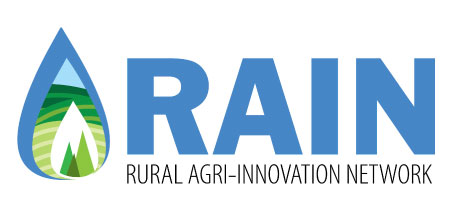In late November 2019, St. Joseph Island resident Sheila Campbell received a link to an article reporting on a study that had been done by a graduate student at the University of Guelph. The article revealed a study of “feral” apple trees for possible use in the cider industry.
The very next day, fellow St. Joseph Island resident Maria Smith sent over a link to a story about a “Lost Apple Project” being conducted by amateur biologists in Idaho. These articles sparked a long-held curiosity to find out more about the trees growing on the Island and on properties on Lake Huron’s North Shore properties.
Campbell contacted Dr. Brian Husband, a Professor and Associate Dean in the Department of Integrative Biology at the University of Guelph. The graduate student who conducted the study of the feral apple trees was a pupil of Husband’s at the University, and Campbell was curious to know if any of the trees in St Joseph Island or North Shore area had been included in the study. The answer was “no”, but Dr. Husband was very interested to find out if there had once been a viable commercial apple growing industry in that area.
Sparked by Dr. Husband’s interest, Campbell contacted RAIN Manager David Thompson. He, too, took interest in the initiative, and was put in contact with the University of Guelph professor.
Campbell and Smith went to the local library to scan the St. Joseph Island Historical Society’s cache for information on that apple industry. They knew that, at the turn of the last century, there had been a nursery initiative operated by David Tait that sold apple trees to many local landowners in the area.
As a result of numerous conversations with the late Elenor Adcock, Campbell knew that Tait had imported stock from many sources ranging as far as Russia. Campbell and Smith uncovered a Sault Star article written by Edith Cameron referring to three ledgers from Tait’s Nursery. They discovered that those ledgers still existed and were able to locate them. The documents were in the care of Will Samis and were loaned to RAIN for review and to be copied for use in their studies.
Campbell and Smith met with RAIN staff to form a plan to study of the local resources, and Dr. Husband was briefed on the plan via teleconference. The project has since been launched, and Sheila Campbell will be leading the project.
In late June or early July, leaves will be collected from selected trees and will be sent to Dr. Husband’s lab in Guelph where he will oversee the processing to determine DNA profiles. In the following months, sample apples from these same trees will be collected to match the flavour profiles to the DNA.
As a result of the social distancing measures in place, a meeting will be held at a date to be determined for those who wish to volunteer for this project. At that time, volunteers will receive training on how to correctly collect samples for DNA testing and receive their collection kits. Volunteers can collect samples from the trees on their own property or can assist in collection in a wider area.
If you would like to volunteer please fill out this form. If you have any questions please contact Sheila at lostapplealgoma@gmail.com.

